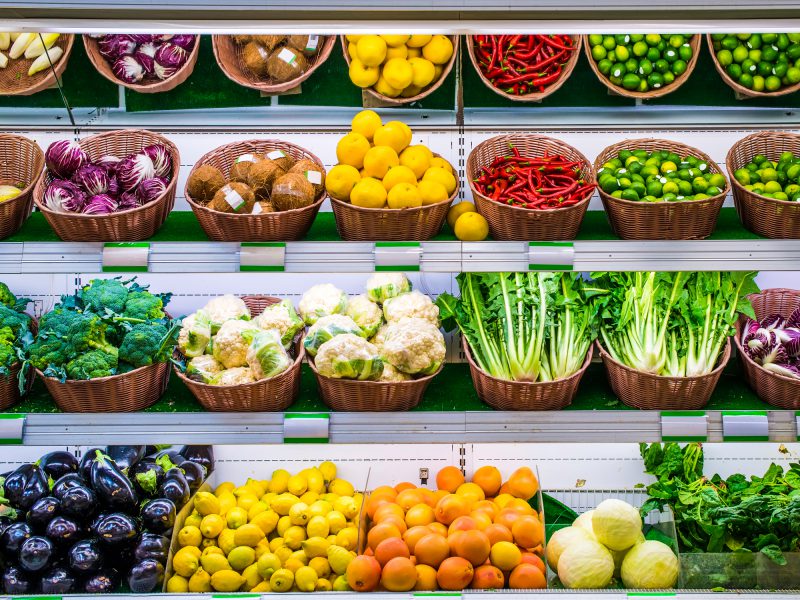
Jenny Smiechowski
Luckily, there are plenty of safe, natural ways to send these harmful toxins packing. You can try fasting, colonics or other popular detox methods… but some of these are a bit on the extreme (and expensive) side.
Or you can keep your detoxification regimen really simple and follow one easy piece of advice: Eat a lot of cruciferous vegetables.
The latest research shows that a compound in cruciferous vegetables known as sulforaphane can actually activate your body’s “detoxification” gene and help your body get rid of the toxins that lead to cancer.
Now there are certain plant compounds that have been proven time and time again to prevent cancer, and sulforaphane is one of them. Previously, sulforaphane has been shown to selectively kill cancer cells, so its ability to alter your genes in a way that promotes detoxification is just an added bonus.
These two abilities combined make sulforaphane a super potent cancer-fighter—a fact which isn’t lost on researchers. Recently, researchers from the University of Pittsburgh decided to study whether sulforaphane could keep survivors of head and neck cancer from relapsing. And the results are promising.
“With head and neck cancer, we often clear patients of cancer only to see it come back with deadly consequences a few years later,” said lead author of the study Julie Bauman, M.D., M.P.H., co-director of the University of Pittsburgh Medical Center Head and Neck Cancer Center of Excellence. “Unfortunately, previous efforts to develop a preventative drug to reduce this risk have been inefficient, intolerable in patients and expensive. That led us to ‘green chemoprevention’–the cost-effective development of treatments based upon whole plants or their extracts.”
Now Bauman has studied the anti-cancer effects of sulforaphane in human cells, human beings and mice, and here’s what she’s found so far:
- Sulforaphane activates the genes responsible for detoxifying carcinogens in both healthy and cancerous human throat and mouth cells.
- Healthy people who swished juice containing sulforaphane around in their mouths also effectively triggered these cancer detoxification genes in their mouth cells.
- Mice prone to head and neck cancer who were given sulforaphane had less tumors than mice who weren’t given sulforaphane.
In case you don’t already know, sulforaphane can be found in cruciferous vegetables like broccoli, cauliflower, cabbage, kale, garden cress, bok choy and Brussel sprouts, among others. So your mom was right when she told you to eat your broccoli—her advice may have even helped you prevent cancer up until this point.
In Baumann’s study, she and fellow researchers gave participants high doses of broccoli sprout extract because broccoli sprouts are actually the most potent sources of sulforaphane. In other words, broccoli (and its sprouts) should be the first of the cruciferous vegetables you turn to in your cancer prevention efforts.
If you’re really serious about getting your daily dose of sulforaphane, you can grow your own broccoli sprouts at home—all you need are a mason jar, a sprouting lid, broccoli seeds and water. Check out this video tutorial here to get started. Once you start growing your own sprouts, you can add a handful to every meal and you should be good to go.
But there are also sulforaphane supplements on the market, if you’d rather go that route. Recommended dosages range anywhere between 400 mcg and 60 mg daily. Of course getting your sulforaphane (and other nutrients) from whole food sources is always the healthiest option.
Editor’s note: Discover 22 natural cancer-fighting supplements Dr. Michael Cutler lists in his comprehensive cancer guide, Surviving Cancer. He reveals the truth behind the medical establishments biggest money maker — and how to escape their outdated and useless treatments and drug therapies. To get your copy today — plus 3 FREE reports — click here!
Sources:
E. Bauman, Y. Zang, M. Sen, C. Li, L. Wang, et al. “Prevention of Carcinogen-Induced Oral Cancer by Sulforaphane.” Cancer Prevention Research, June 2016.
“Beyond prevention: sulforaphane may find possible use for cancer therapy.” Oregon State University. http://oregonstate.edu. Retrieved June 27, 2016.
“How to Make Broccoli Sprouts.” Whole Life Nutrition. https://wholelifenutrition.net. Retrieved June 27, 2016.